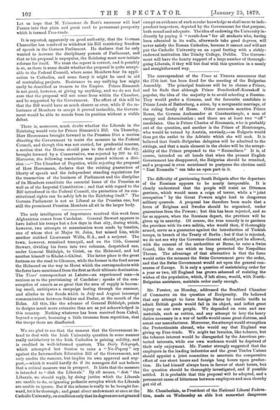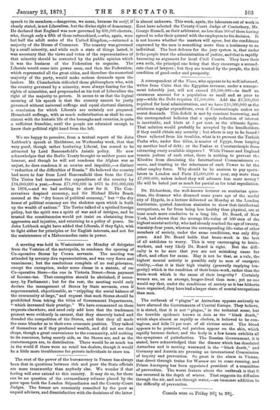Mr. Chamberlain, as President of the National Liberal Federa- tion,
made on Wednesday an able but somewhat dangerous
speech to its members,—dangerous, we mean, because its motif, if clearly stated, is not Liberalism, but the divine right of democracy. He declared that England was now governed by 600,000 electors, who, though only a fifth of those enfranchised,—who, again, were but half the adult males of the United Kingdom,—returned a majority of the House of Commons. The country was governed by a small minority, and while such a state of things lasted, it was necessary that the views and votes of the representatives of that minority should be corrected by the public opinion which it was the business of the Federation to organise. The Liberals would come into power soon, and then the Federation, which represented all the great cities, and therefore the numerical majority of the party, would make serious demands upon the leaders. Mr. Chamberlain ridiculed those philosophers who, with the country governed by a minority, were always fearing for the rights of minorities, and propounded as his test of Liberalism the right of the majority to govern. It seems to us that the logical meaning of his speech is that the country cannot be justly governed without universal suffrage and equal electoral districts, a conclusion for which Liberals are certainly not prepared. Household suffrage, with as much redistribution as shall be con- sistent with the historic life of the boroughs and counties, is quite a sufficient franchise, until the people are educated enough to know their political right hand from the left.



































 Previous page
Previous page